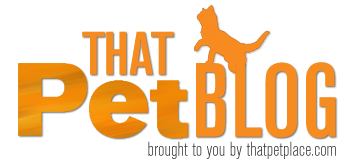 A specially-trained Labrador Retriever named Marine has made medical history by exhibiting an amazing degree of accuracy in detecting bowel cancer. It is hoped that further studies will lead to new advances in cancer detection and treatment.
A specially-trained Labrador Retriever named Marine has made medical history by exhibiting an amazing degree of accuracy in detecting bowel cancer. It is hoped that further studies will lead to new advances in cancer detection and treatment.
A Near-Perfect Performance
Marine was able to detect the presence of bowel cancer by sniffing either the breath or stool samples of 48 people that had previously been diagnosed with the disease. The dog’s accuracy was rated at 95% for breath samples and 98% for stool samples, and was not affected by potentially confusing factors such as smoking or the presence of other gastro-intestinal problems.
Importantly, accuracy was just as high when very early-stage cancers were involved…by contrast, the best non-invasive test (Fecal Occult Blood Test) detects early stage bowel cancer in only 1 of 10 trials! Marine even signaled the presence of cancer in people with polyps, which are considered benign, but may be pre-cursors to bowel cancer.
When analyzing samples of 258 people without bowel cancer, Marine was correct (in not detecting cancer) 99% of the time.
An Important New Finding
This work, carried out by researchers from Japan’s Kyushu University, has important implications for future cancer studies.
Marine’s ability to detect cancer via a scent raises the possibility that other cancers may release chemical compounds that circulate throughout the body. This information may lead to tests that can find various cancers before they spread from their point of origin and become established in other parts of the body.
Future Possibilities
While the large-scale use of dogs for cancer detection may not be practical, understanding how they perform so well may lead to the development of testing devices that utilize the same “technology”.
We’ve only just begun to tap our canine friends’ potential in this area…research in other facilities indicates that dogs may also be able to detect blood, breast, lung, skin and ovarian cancers.
Canine Conservationists
Dog noses are also playing an important role in conservation…one colleague of mine has successfully used a mixed-breed dog to help locate box turtles in the field. Dogs have also been trained to differentiate between the scat of related rare and common animals. Being able to distinguish, for example, between bobcat and lynx scat, can save time and money in field research work.
Following in the footsteps of dogs that locate people, drugs and bombs, a growing number are being used to uncover smuggled animal skins, live birds, ivory and similar items.
In Europe and Africa, two rare breeds are being used to protect livestock from predators…unlike poison, they discourage rather than kill lions, bears and wolves.
Please see the articles below for further information.
Further Reading
Guard Dogs Benefit Wildlife and Livestock
You can read more about canine cancer detection research here.
Conservation Dogs Working for Wildlife
Canine nose image referenced from wikipedia and originally posted by Elucidate
 That Pet Blog That Pet Place Pet Blog
That Pet Blog That Pet Place Pet Blog

I was reading the comments, and I have to agree with what Tom said.